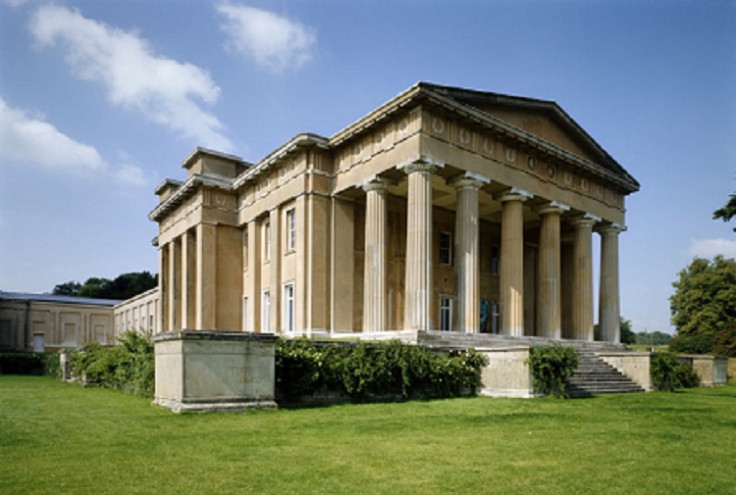Slavery Links to UK Stately Homes Revealed

The link between Britain's stately homes and African slavery has been repressed, according to English Heritage.
It has published a book exploring how the slave trade helped wealthy owners build their country estates.
Slavery and the British Country House is the first detailed examination of the issue and includes Kenwood House in north London and Osborne House in the Isle of Wight.
The book's editors Andrew Hann and Madge Dresser write that the public has "either studiously ignored or actively repressed" information about the links between country houses and the slave trade.
"When they were acknowledged at all in the heritage sector, it was usually done in a sanitised manner that rendered the connection a historical curiosity," they write.
Researchers have listed country house owners where slaves worked and studied properties, such as Marble Hill House in Twickenham and The Grange at Northington, Hampshire, with slavery-related motifs in their interiors.
More than 100 country houses and estates across the country benefited from the millions of pounds given in compensation to slave owners in the 19th century.
Some country houses were built and refurbished with the proceeds of slavery, and particularly of slave compensation
The Independent on Sunday revealed earlier this year that when slave ownership was abolished in Britain in 1833 the government paid out a total of £20m – the equivalent of £16.5bn today – to compensate thousands of wealthy families for their loss of "property".
According to Nick Draper, an academic from University College London, the financial benefits given to country homes through slavery compensation varied widely.
Draper, who helped to compile an internet database of the compensation records this year, said: "It's important to differentiate between the kind of connections that existed between slavery and the British country house.
"Some of the country houses clearly are built by the proceeds of slavery in a very direct way. Others are occupied by slave-owning families for a limited period."
Author Hann told the Independent newspaper that the database revealed a percentage of Britain's country homes were financed by money funnelled into the UK from slavery.
Hann said: "It shows that certainly some country houses were built and refurbished with the proceeds of slavery, and particularly of slave compensation, which provided a substantial influx of capital for landowners in that period.
"But these records are only the tip of the iceberg because you've got the ongoing benefits with the proceeds of slavery circulating in these country houses for centuries earlier.
"The database shows who had slave-related property at the time of emancipation, but some landowners had moved out of slavery by the time it was abolished."
Slavery and the British Country House is published by English Heritage at £50.
© Copyright IBTimes 2025. All rights reserved.






















